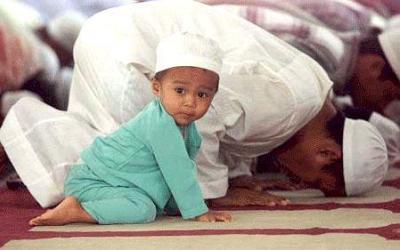Mosque or Modernity?
Several related factors underlie the region’s chronic instability. One is underdevelopment. While oil has made a few presidents and princes staggeringly rich, the rest of the population has received little benefit. Hunger is widespread; indeed, poverty and inequality have fueled much of the popular mobilization in the region.
But the region’s protest politics also reflects growing rejection of dictatorship and arbitrary rule. Despite these countries’ lack of a tradition of open dissent, globalization has made it plain to all that economic development requires regime change. Finally, political Islam is common to all of the region’s conflicts, and should not be viewed – as it often is – in isolation from these countries’ economic woes. Simply put, Islam – one of the world’s great religions, practiced by nearly one-quarter of humanity – missed its development takeoff.
There are no easy ways out of underdevelopment without challenging traditional lifestyles, customs, and social relations. Indeed, religions do not resist the pressures of economic change well.
For Jews, given the absence of a homeland, development occurred among the diaspora, with civil emancipation in Europe giving rise to reformist movements aimed at reconciling faith and modernity. Similarly, Christianity, whether Catholic or Orthodox, blocked economic development for centuries, until internal reformists redefined theological positions on money and banking, the nature of progress, and science and technology. It is no accident that religious reform in Scandinavia, Germany, England, the Netherlands, and the United States gave rise to today’s global capitalism.
This dynamic extends even to officially atheist China. Orthodox Communism, a perfect secular simulacrum of religion, has been the primary victim of development since China launched its market reforms in 1979.
Islam also has its reformists. Consider the mission entrusted to Rifa’a al-Tahtawi, the great Egyptian scholar sent to Europe by Mohammed Ali in 1826 to learn about Western civilization and to try to forge an understanding between it and Islam. But everywhere in the Arab world, without exception, reformists have been jailed, killed, or reduced to political impotence.
In the absence of an analog to the West’s Industrial Revolution, Muslims (and especially Arabs) have faced multiple humiliations and partial colonization over the past two centuries. The resulting legacy of grievance, shame, and anger is part of what underpins the region’s current malaise.
Indeed, some of the street demonstrations leave no doubt that many people are moving away from religion altogether. This is as visible in Egypt and Tunisia as it is in Turkey. But the grim reality for the Islamic world is that, in times of widespread uncertainty, the forces of tradition tend to speak more loudly and clearly than those of change.
Peace in this huge and strategically vital region – and thus in the world – can prevail only if its countries manage, despite their turmoil, to protect themselves from ideological extremes and political excesses. The importance of this should be abundantly clear to Westerners, whose modern civilization grew out of religious dissent that was initially met by the violence of the Inquisition and the Counter-Reformation. If Islam, particularly in the Middle East, is on a similar trajectory, long-term instability in the region is all but assured. Mutual understanding is the only way to moderate the consequences.
Michel Rocard
Michel Rocard, former First Secretary of the French Socialist Party and a member of the European Parliament for 15 years, was Prime Minister of France from 1988 to 1991.

